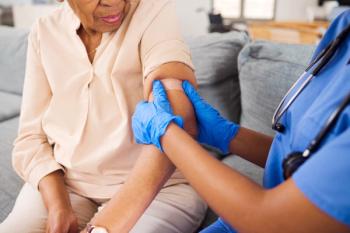
Kinlessness and Cancer: Exploring the Impact on Lung Cancer Patients
A group of researchers recently aimed to investigate the prognosis of patients with NSCLC that lacked a spouse, family members, or friends to support them during cancer treatment.
People undergoing cancer treatment often rely on their spouse, partner, family members, or friends for support as they deal with symptoms and side effects. But does the support of loved ones affect treatment outcomes, and how do these outcomes differ for individuals without it?
A group of researchers recently aimed to investigate this topic. Their study was recently published in
The retrospective, single-center study included 144 patients with advanced NSCLC who visited the medical center between November 2018 and February 2023. Among the patients, 13 were identified as kinless, meaning they did not have any immediate family or friends to support them.
The results showed that kinless patients had a significantly shorter overall survival compared to patients with kin. Patients with kin had a median survival of 1.34 years (95% CI of 1.01-1.79 years), while kinless patients had a median survival of 0.53 years (95% CI 0.23-0.76 years).
While the study's findings are limited by its small number of kinless participants, the findings highlight the importance of social support in prognosis of patients undergoing treatment for advanced NSCLC. The study provides valuable insights into the role of family support in cancer treatment decisions and outcomes, particularly in patients facing advanced stages of the disease.
“One possible reason for the poor prognosis of kinless advanced lung cancer patients is that it is difficult to manage cancer-related symptoms and adverse events that emerge during the treatment of NSCLC without a supporter,” the authors wrote in their paper.
These findings are notable considering the fact that more adults are living alone today than in the past. Marriage rates have been declining for decades in many countries, including the
Further research is needed to evaluate the clinical impact of kinlessness on the management of advanced NSCLC. By having an awareness of the impact of kinlessness on survival in patients with NSCLC, managed healthcare professionals can better address the unique needs of individuals who may lack traditional support systems.
Newsletter
Get the latest industry news, event updates, and more from Managed healthcare Executive.























